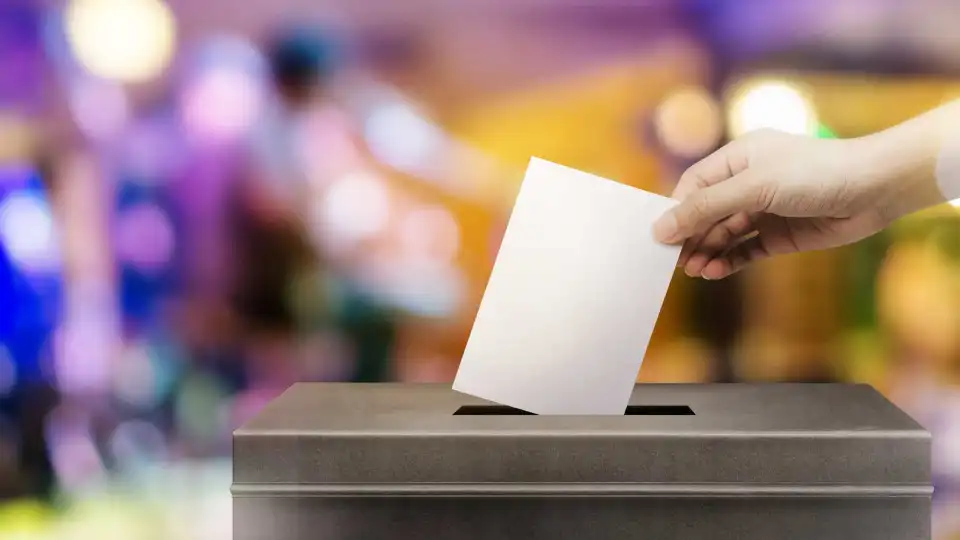Lithuania's presidential election dominated by defense, Russia and China
Lithuanians vote Sunday in the first round of a presidential election after a campaign dominated by defense issues as the Baltic state seeks to bolster its security against neighboring Russia.

© Shutter Stock

Mundo Lituânia
The "Russian threat" has taken hold in the Baltic country of 2.8 million people, a member of the European Union (EU) and NATO, particularly due to fears fueled by the country's leadership in the event that Moscow wins its war against Ukraine.
"The understanding of the Russian threat by Lithuania is unanimous and indisputable, and the main candidates agree on this issue," Linas Kojala, director of the Center for Eastern European Studies, told AFP news agency.
Polls give outgoing President Gitanas Nauseda, 59, a former banker, a comfortable lead over the seven other candidates, including Prime Minister Ingrida Simonyte and well-known conservative lawyer Ignas Vegele.
Observers expect Nauseda to win in the second round, scheduled for the end of May.
In the first round, according to the latest poll, Nauseda should get more than 35% of the vote, against 12% for Vegele and 10% for Simonyte.
Polls opened last Tuesday for early voting in the presidential election, with voters also casting their ballots in a referendum on citizenship status.
The President of Lithuania, with essentially ceremonial powers, is the commander-in-chief of the Armed Forces, oversees foreign and security policy with the government and participates in EU and NATO summits.
The three main candidates have similar positions on defense, but differ on relations between Lithuania and China, which have been strained for several years over the issue of Taiwan.
Vegele, a 48-year-old lawyer who became known for his opposition to mandatory vaccination during the pandemic, presents himself as an alternative to traditional politicians and promises more transparent governance, AFP notes.
Simonyte, 49, is a fiscal conservative but has liberal views on social issues. She supports same-sex marriage, which is still controversial in this predominantly Catholic country.
She is running for president for the second time, after being defeated by Nauseda in the second round of the 2019 election, with a turnout of 45.7%.
"Simonyte is supported by voters from the conservative party and the liberals, while Nauseda is a left-wing candidate in terms of economic and social policy" and Vegele "will only receive the support of those who simply want a change," Ramunas Vilpisauskas, an analyst at the University of Vilnius, told AFP.
Lithuania, a former Soviet republic now aligned with the major Western powers, remains one of the main donors to Ukraine and stands out for its significant investments in defense, with a current budget of 2.75% of GDP.
The government led by Simonyte is expected to present proposals in the coming weeks to increase defense spending to 3% of GDP.
Lithuania intends to use these funds to acquire tanks and new anti-aircraft defense systems, and plans to permanently host a 5,000-strong German brigade on its territory by 2027.
None of the main candidates contest these projects, but Vegele has promised a defense audit to ensure effective financial management if elected.
The difficult relations between Nauseda and the ruling conservatives of his rival Simonyte have prompted debates on foreign policy, particularly relations with China.
Bilateral relations worsened in 2021, when Vilnius allowed Taiwan to open an embassy under the island's name, breaking with the usual diplomatic practice of using the name of the capital, Taipei, to avoid antagonizing Beijing.
China, which considers Taiwan part of its territory and opposes any support for the island that might give it international legitimacy, downgraded its diplomatic relations with Vilnius and blocked its exports.
The decision has sparked strong controversy among Lithuanian politicians, with some demanding that relations be restored for the sake of the country's economy.
Among the 2,000 observers from the Organization for Security and Cooperation in Europe (OSCE) who are expected to monitor the vote are 20 international observers from Estonia, Latvia, Poland, Ukraine, Moldova, as well as representatives from the United States Electoral Assistance Fund and the Ukraine office of the International Foundation for Electoral Systems (IFES).
Read Also: Netherlands to deliver Patriot systems to Lithuania in July (Portuguese version)


Descarregue a nossa App gratuita.
Oitavo ano consecutivo Escolha do Consumidor para Imprensa Online e eleito o produto do ano 2024.
* Estudo da e Netsonda, nov. e dez. 2023 produtodoano- pt.com



